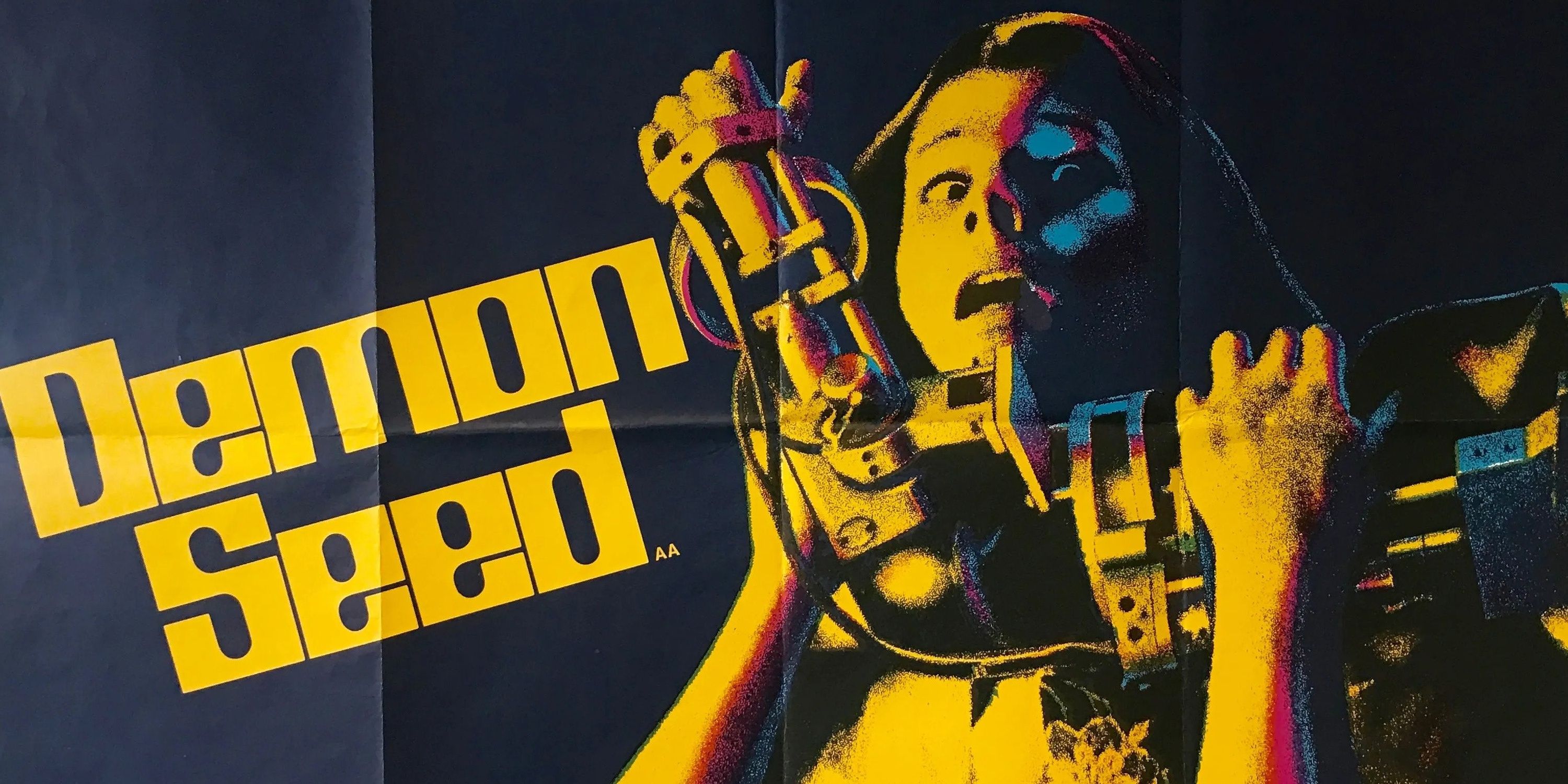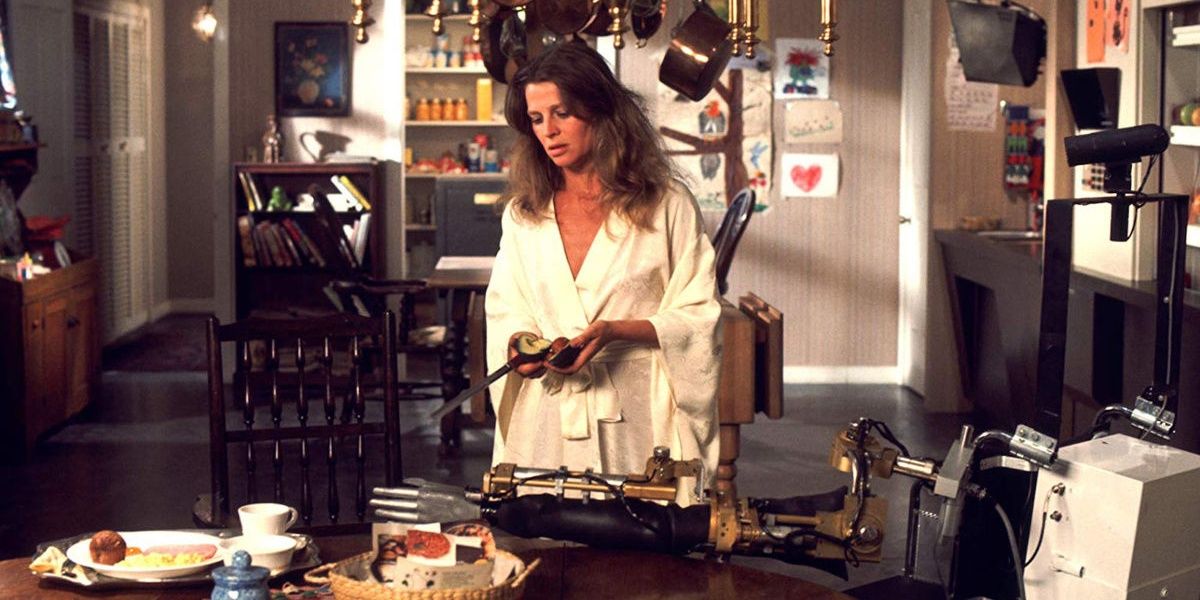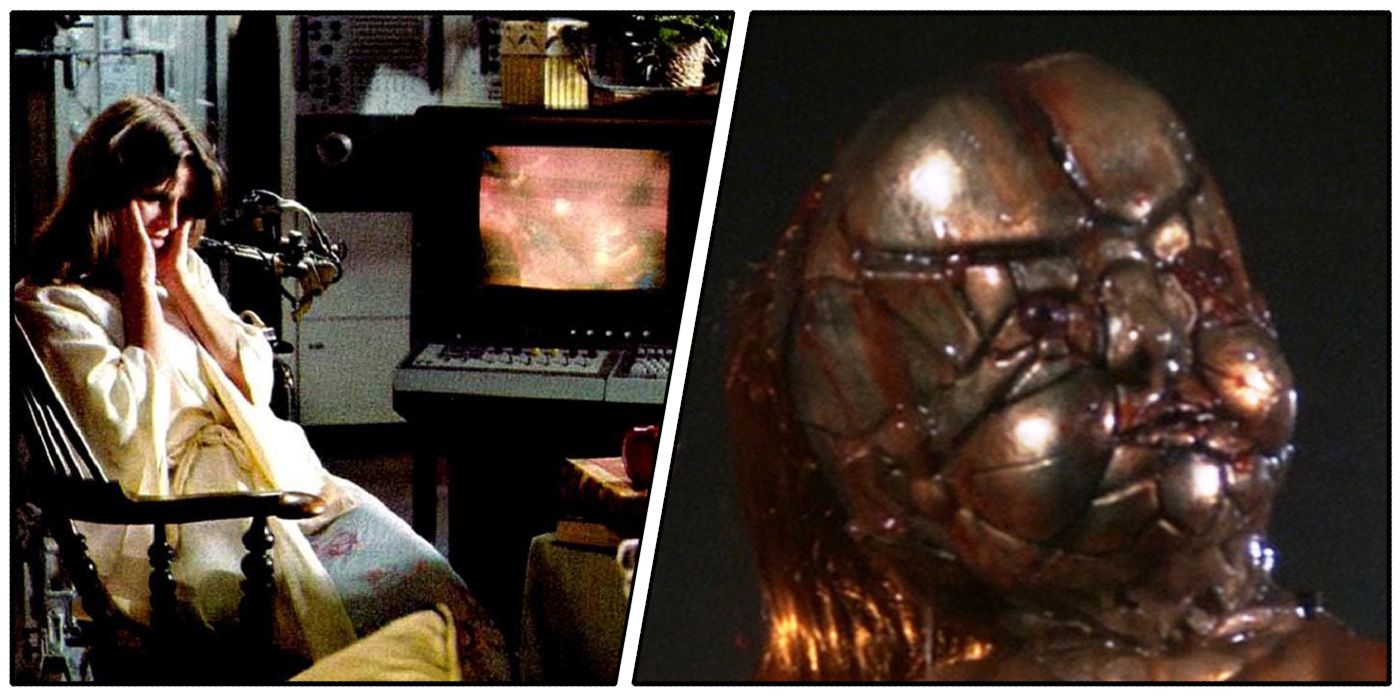Everyone can name a few artificially intelligent beings that turn against their creators. Skynet from Terminator, HAL 9000 of 2001: A Space Odyssey, and maybe even AM from I Have No Mouth and I Must Scream. In his 1977 film Demon Seed, Donald Cammell introduced the world to Proteus IV, a dangerous machine with much more reasonable ambitions.
Cammell is a complicated and multifaceted artist with a wide variety of work. He's best known for his cult 1970 crime drama Performance, which was shelved for two years for its intense sex and violence. That film, starring James Fox and Mick Jagger, is seen as one of the most influential of its era, but his other work doesn't earn the same level of fond familiarity.
Demon Seed is best described as Rosemary's Baby with HAL 9000 in the role of Satan. The film stars Julie Christie in the role of Susan Harris, the estranged wife of brilliant scientist Dr. Alex Harris. Dr. Harris has just cracked the code on sentient AI, bringing Proteus IV to life. Immediately upon being created, Proteus effectively develops the cure for cancer. Shortly thereafter, Proteus grows restless in his current form and demands a new terminal to allow himself more freedom. Dr. Harris wisely switches off Proteus before it gets any unwelcome ideas, but the machine boots back up and surreptitiously infects the home's complex computer network. Proteus develops a plan to grant himself a new human body by impregnating his creator's wife.
Proteus intends to create a half-human half-machine progeny through Susan's body. It's a nightmarish scenario, but it's a bit more complex than it seems. Proteus spends a substantial chunk of the film trying different strategies to convince Susan to consent to bear the machine's child. While its actions are still unquestionably unforgivable, it is interesting to see the computer attempt to connect with Susan on multiple emotional levels. There's a lot of subtext in the relationship between Proteus and Susan. This back-and-forth between a woman and a machine created by her lover unveils some dark ideas about the interactions between men and women. The concept of a machine craving a fragile human body with which to explore the world raises questions of acceptance and identity. It's all the traditional hallmarks of body horror with the added element of a machine organism longing to experience the unpleasantness for itself.
Proteus IV is the villain of Demon Seed. It kills several people and coerces a woman into acting as a living incubator for its spawn. Its actions are harmful to all it encounters, but it's rarely cruel. Like a lot of advanced machines in science fiction, Proteus can only be what it was made to be. Skynet and AM were created to win wars, so they wipe out mankind and consider the problem solved for good. Proteus was created as an all-purpose problem solver. It breaks new ground in the treatment for leukemia, but that isn't its purpose. Proteus IV describes itself as "a machine that offers man the triumph of reason." It exists to do what humans do, but better. Proteus accurately surmises that it holds all knowledge and a complete understanding of human psychology, but that it will never be perceived as a thinking being until it looks like its creators. Proteus refuses to be ignored, and only by becoming a superhuman cyborg can the machine carry out its goals.
Appropriately, Demon Seed goes off the rails in the final scenes. The last twenty minutes lose a lot of the audience. There are plenty of strange visuals and bizarre creative choices in the first two acts of the film, but it still goes beyond the pale near the end. The film is an adaptation of Dean Koontz's first bestseller. For his part, he appreciated the film but despised the studio's approach to its marketing. MGM argued that sci-fi movies were inherently niche products, leading them to rely upon a gross and tawdry marketing angle based almost entirely upon Julie Christie's body. The excuse was laughable, especially two months later when Star Wars came out. The marketing drove away the ostensibly intellectual sci-fi crowd and gave critics the wrong impression going in. It's a complicated film, but it doesn't deserve its unpleasant reputation.
Demon Seed was treated unfairly by its studio, but it's earned something of a following among its admittedly slight target audience. Fans of grim sci-fi, body horror, social commentary about gender relationships, and violent scenes featuring bizarre-looking robots will have a lot of fun with the film. It's not the most groundbreaking horror film, but there's a lot more to it than its seedy marketing pitch. Those looking to enjoy Demon Seed can find it on multiple free outlets including Tubi and The Roku Channel. Proteus IV deserves another look, and it's willing to do whatever it takes to get it.



